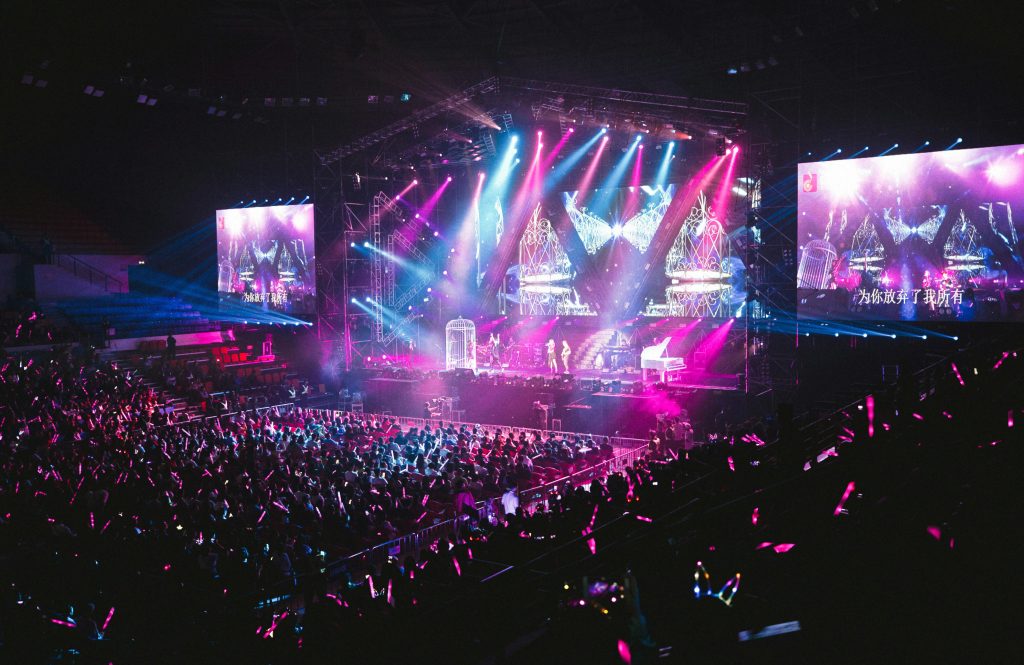Corporate Event Planning Overview
Organising a corporate event involves meticulous planning and coordination. It’s an art that combines creativity with strategic thinking to achieve specific business objectives.
In this overview, we will examine the essential role corporate events play in the business landscape and the advantages of enlisting professional event planners.
Importance of Corporate Events
Corporate events serve as a cornerstone for many businesses, providing a platform for networking, team building, employee recognition, and client engagement. They are instrumental in fostering business relationships, enhancing company culture, and promoting brand awareness.
With the corporate event industry projected to grow more than 17% year-over-year, the significance of corporate events in the industry cannot be overstated.
This substantial growth underscores the need for companies to deliver memorable and engaging events that resonate with their audience and set them apart from competitors.
Benefits of Hiring Event Planners
The complexities of event planning often require a specialised skill set. This is where corporate event planners come into play. Companies offer the expertise that stems from years of experience in corporate event planning.
Event planners are adept at listening to clients’ needs, providing expert guidance, and ensuring the successful execution of events. By hiring a corporate event planner, companies can benefit from:
- Professional knowledge of industry standards and trends, including the integration of new technologies.
- Access to a vast network of vendors, often at reduced costs due to established relationships.
- Skillful management of budgets and logistics, ensuring events are delivered on time and within financial parameters.
- Creative insights that enhance the event experience, making it unique and memorable.
- Risk management, including contingency planning to handle any unforeseen issues.
By entrusting the complexities of event organisation to seasoned professionals, companies can focus on their core business activities while reaping the rewards of a well-executed corporate event.
With the dynamic changes in the events industry, particularly the rise of virtual and hybrid formats, the role of event planners has become more crucial than ever.
Their ability to adapt and leverage new technologies ensures that corporate events remain innovative and impactful in today’s ever-evolving business environment.

Expertise of Event Planning Companies
Planning a corporate event involves an intricate blend of logistical coordination, creative design, and strategic planning. Event planning companies offer a wealth of expertise that is essential for the seamless execution of corporate events.
This section delves into the role of event planners and the intrinsic value they bring to corporate event hire services.
Role of Event Planners
Event planners serve as the architects of corporate events, transforming initial concepts into fully realised experiences. Their role encompasses a broad spectrum of responsibilities:
- Client Consultation: Event planners are adept at grasping the company’s ethos and event objectives, ensuring that every aspect aligns with the client’s vision. They offer guidance and insights, drawing from their extensive experience in corporate event planning.
- Budget Management: Skilled in financial oversight, event planners assist companies in formulating and adhering to a budget, providing a detailed understanding of costs.
- Vendor Coordination: With a vast network of suppliers and vendors at their disposal, event planners can negotiate favourable terms and ensure all contractual obligations are met, leading to a smooth event flow.
- Logistics and Operations: Event planners manage all logistical elements, ensuring a hassle-free experience for both the host company and the attendees.
Value of Event Management Services
The value of partnering with a professional event management service cannot be overstated. Companies benefit from:
- Insider Knowledge: Access to exclusive venues and top-tier entertainment is made possible through established relationships within the event planning industry.
- Innovative Solutions: Event planners continually seek out the latest trends and technologies to enhance attendee engagement and the overall event experience. This includes leveraging social sharing and interactive tools.
- Risk Management: With a keen understanding of potential pitfalls, event planners implement preemptive measures to mitigate risks, ensuring a safe and successful event.
- Post-Event Services: The job of an event planner doesn’t end with the event. Services like attendee surveys and event performance metrics offer valuable insights for future event planning.
The expertise of event planning companies serves as a linchpin for orchestrating memorable and impactful corporate events.
Companies looking to create an exceptional event should consider the services of a corporate event planner, recognising the immense value and skill they bring to corporate event planning.
Whether it’s a grand gala, a product launch, or a cutting-edge conference, the right event management services are instrumental in achieving event success.

Trends in Corporate Events
As the corporate landscape continues to evolve, so do the trends within corporate event planning. Companies looking to hire corporate event planners need to stay abreast of the latest shifts in the industry to ensure successful and impactful events.
In-Person vs. Virtual Events
The debate between in-person and virtual events has become a central topic within the event planning community.
In 2024, 86% of event programs include in-person gatherings, with a significant number of global event leaders affirming the critical role these events play in revenue generation.
Conversely, the prediction of virtual events growing at a compound annual rate of 21.4% from 2022 to 2030 highlights their burgeoning popularity.
| Event Type | Percentage Planning for 2024 |
| In-Person | 86% |
| Virtual | 24% |
| Hybrid | 41% |
The continued importance of virtual and hybrid events is evident, with their convenience, accessibility, and broader reach being key advantages.
Virtual events allow attendees from across the globe to participate without the need for travel, thus reducing costs and expanding the potential audience.
Impact of Technology on Event Planning
Technology’s influence on event planning is undeniable, with innovative solutions reshaping the attendee experience.
The integration of Augmented Reality (AR) and Virtual Reality (VR) is creating more engaging and immersive events.
AR enables interaction with virtual elements via smartphones, while VR offers a lifelike experience that can transport guests to different environments.
These technologies are not just futuristic concepts but are expected to become staples in engaging attendees in 2024, as they offer unique and memorable event experiences.
Event planners are increasingly leveraging these tools to differentiate their offerings and provide value to their clients.Companies planning corporate events should consider these technological trends when selecting their corporate event hire services.
By embracing these innovations, businesses can create events that are not only effective in achieving their goals but also memorable and cutting-edge.

Enhancing Customer Service
In the realm of corporate event planning, customer service stands as a pivotal aspect that can determine the overall success of an event.
Exceptional customer service can set a corporate event planner apart, ensuring that clients’ needs are met with professionalism and care.
Customer Service Strategies
Effective customer service strategies involve understanding and managing customer expectations to deliver on their needs promptly and efficiently.
Good customer service is crucial regardless of the context—be it face-to-face interactions, over the phone, or online.
Creating a positive, helpful, and friendly environment is fundamental to leaving clients with an outstanding impression.
| Strategy | Description |
| Active Listening | Paying full attention to the clients’ needs and feedback. |
| Understanding Needs | Identifying what clients want, need, and expect from the event. |
| Effective Communication | Ensuring clear, concise, and positive interactions. |
| Personalisation | Tailoring services to the unique preferences of each client. |
To enhance customer service within the sphere of corporate events, event planners should:
- Train staff thoroughly in the features and benefits of their services, enabling them to inform and educate the customer effectively.
- Gather and utilise customer data to understand purchasing patterns and preferences.
- Develop a service delivery flowchart to identify and address any gaps in service delivery.
For more insights into the importance of customer service in the context of corporate event hire, and to explore the role of an effective corporate event planner, refer to our detailed sections on corporate event planning and management.